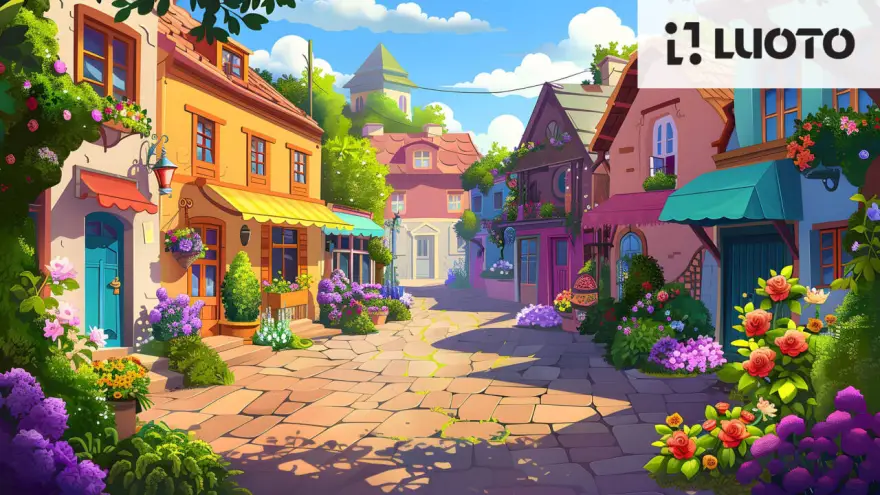Solving Polycrises Requires the Skill of Imagination – It Can Be Learned and Taught

Public discourse is often characterized by a sense of inevitability, economic focus, and a lack of political imagination. Yet solving the polycrisis requires the ability to think differently, to imagine alternative futures and new pathways toward sustainable ways of life, says Doctor of Arts, researcher, and performance artist Pilvi Porkola.
She served as a senior researcher in the project Political Imagination and Alternative Futures (2020–2024), which combined sociological and artistic research to explore how the world could be reorganized in new ways. The project, funded by the Academy of Finland, was carried out at the University of Turku.
“Public debates often imply that there are no alternatives, even though politics is essentially about choosing between alternatives. Political imagination seeks to counter this notion: it’s a way to develop alternatives. We explored what political imagination could mean in practice and how it could be taught as part of social sciences,” says Porkola.
Imagination and teaching it draw on a pedagogy that does not offer ready-made answers but tools for thinking differently. It encourages us to seek out new things and create alternatives. As part of a research project, a course entitled Exercises in Political Imagination was organized for master’s students in sociology over a period of three years. The course teachers and guest artists introduced the students to practical exercises developed in the arts, which were designed to strengthen their imagination in a social context. The research emphasized the collision of artistic and sociological thinking.
“Artists and social scientists reflect on similar issues but use different methods. It’s a shame if we sit in separate rooms, as cross-disciplinary collaboration could bring new perspectives to the dominant questions of our time. Artists have a wealth of knowledge about collaboration, alternative thinking, and experimentation—skills that could greatly benefit the sustainability transition,” Porkola notes.
At the Source of Creativity and Critical Thinking
Developing the skills of imagination and political imagination enhances critical thinking. Questioning dominant dogmas is difficult without seeing alternatives. Problem-oriented thinking may also limit the imagining of other worlds: problems are often attempted to be solved within the same framework in which they arose. The starting point for the research project was that, like other skills, imagination requires practice and can be learned and taught.
During the course, students interacted, performed practical exercises, held discussions, and worked in groups. In one observation task, students searched for signs of possible futures in the urban environment. What does a city sound like when traffic is electrified and noise diminishes? In another exercise, they analyzed the contents of their own bags: what kind of world do these items represent, and do they have a future? In group work, students reflected on the kinds of jobs the world needs, or looked at the present and civic activism through the eyes of future historians.
“I believe change starts in everyday life, and the personal is political. The course provided a meaningful opportunity to reflect on our own experiences and expand on what they say about the current times, society, and the possibility of change. Sometimes you come across the idea that imagination belongs to art and does not apply to other fields, but everywhere now there is a need to seek alternatives and do things differently. The multiple crisis affects everyone and all fields,” Porkola emphasizes.
Based on the feedback, many students were enthusiastic about the course, which applied unconventional methods and offered new perspectives on social sciences and their application in a changing world. Some were hesitant because imagination felt too vague or personal—and some believed they simply weren’t capable of imagining, that it wasn’t for them. Feedback also revealed that pushing the boundaries of imagination is both rewarding and demanding. When asked who should be taught the skill of imagination, Porkola laughs a bit:
“Everyone. The ability to think in alternatives is a civic skill. Imagination should be incorporated into pedagogy. We could start teaching it in primary school. It’s important to teach how things are, but teaching could place more emphasis on the possibility of change and students’ own political agency.”
A practical description of this pedagogical work, titled Teaching Imagination: Pedagogical Perspectives on Political Imagination, written by Pilvi Porkola, Professor of Sociology Suvi Salmenniemi (University of Turku), and Associate Professor of Gender Studies Hanna Ylöstalo (University of Tampere), was published in the Journal of Social Pedagogy (12/2022). The article is based on exercise descriptions, teaching field notes, and student course feedback.
AUTHOR: Saana Katila